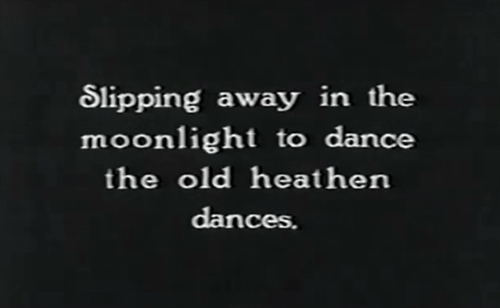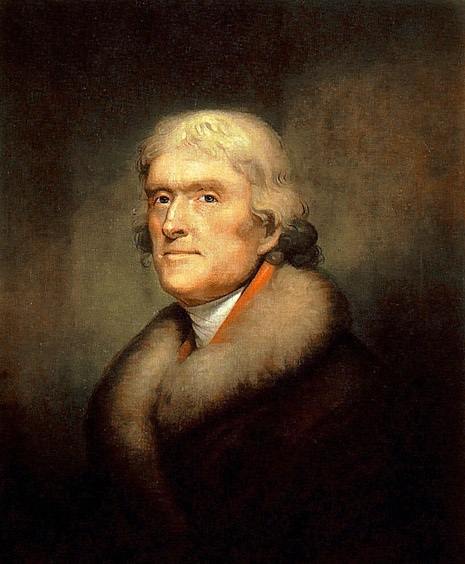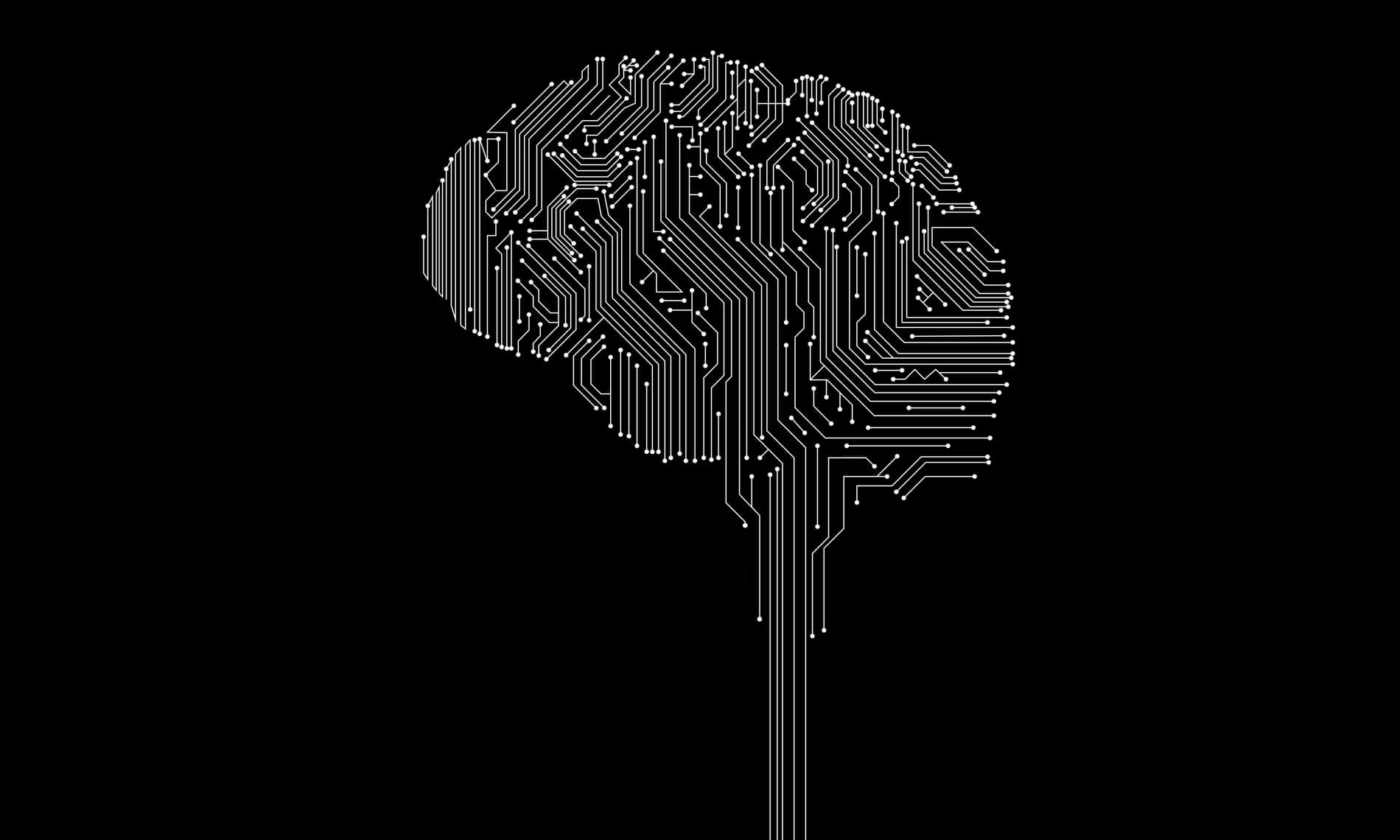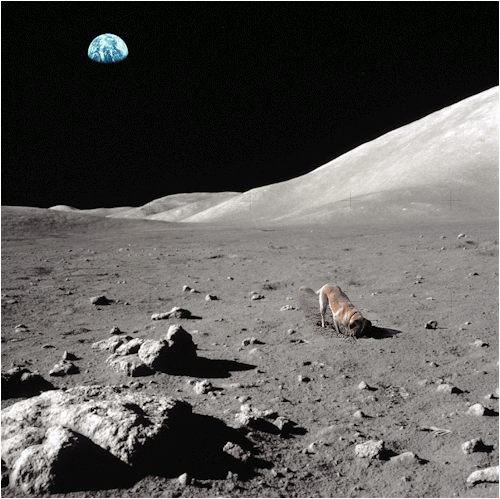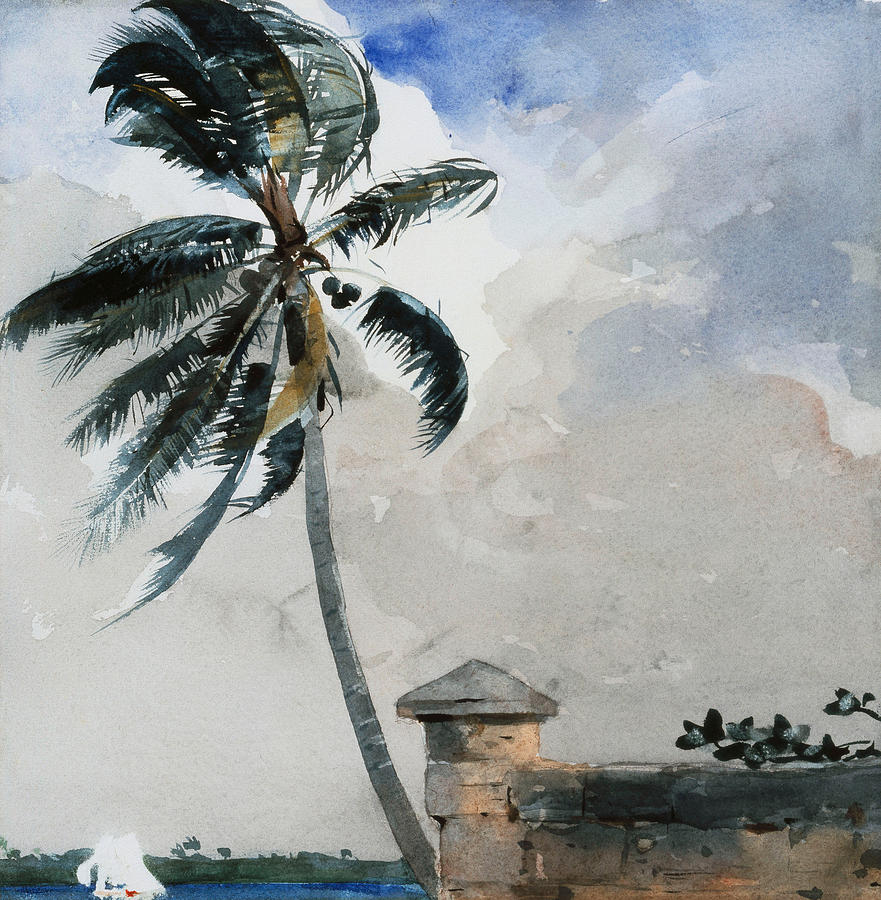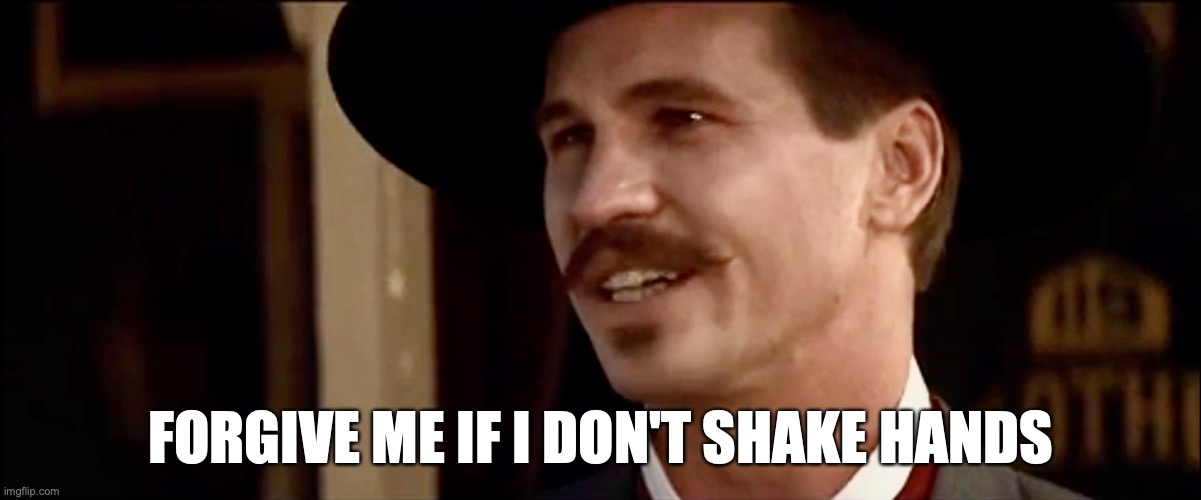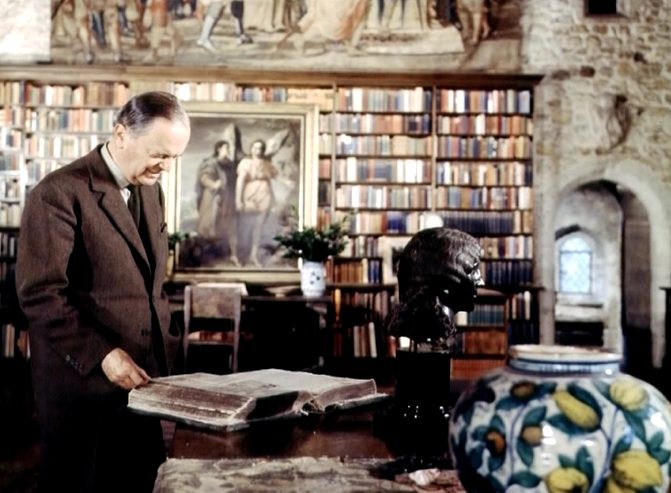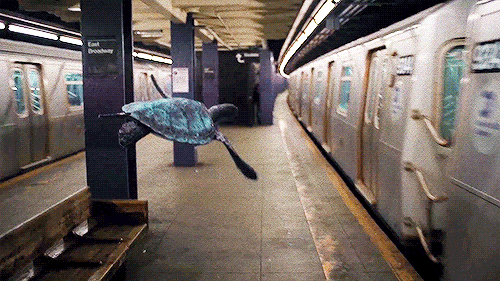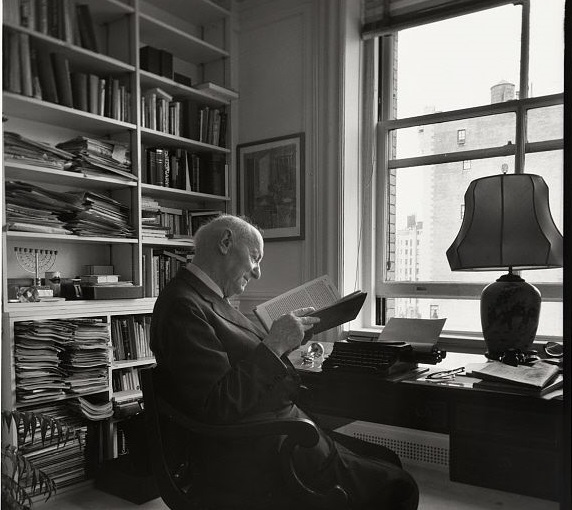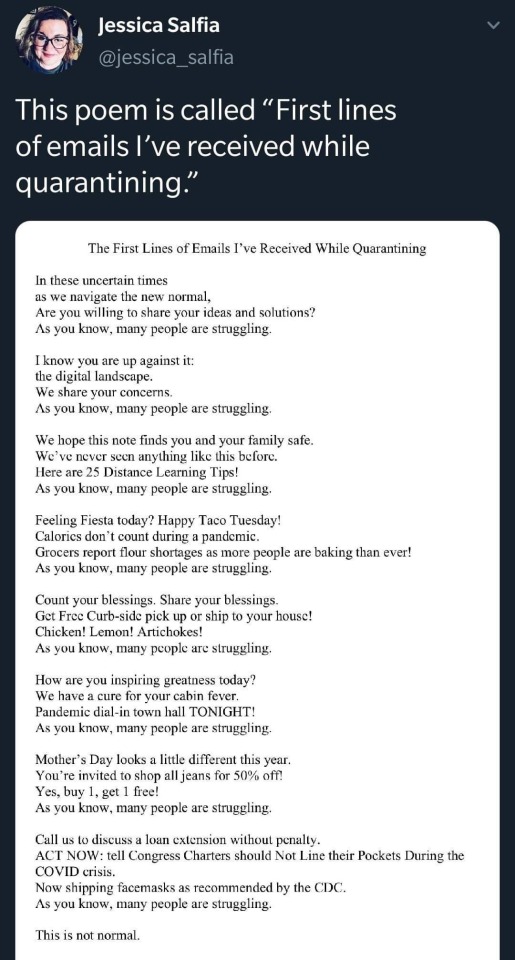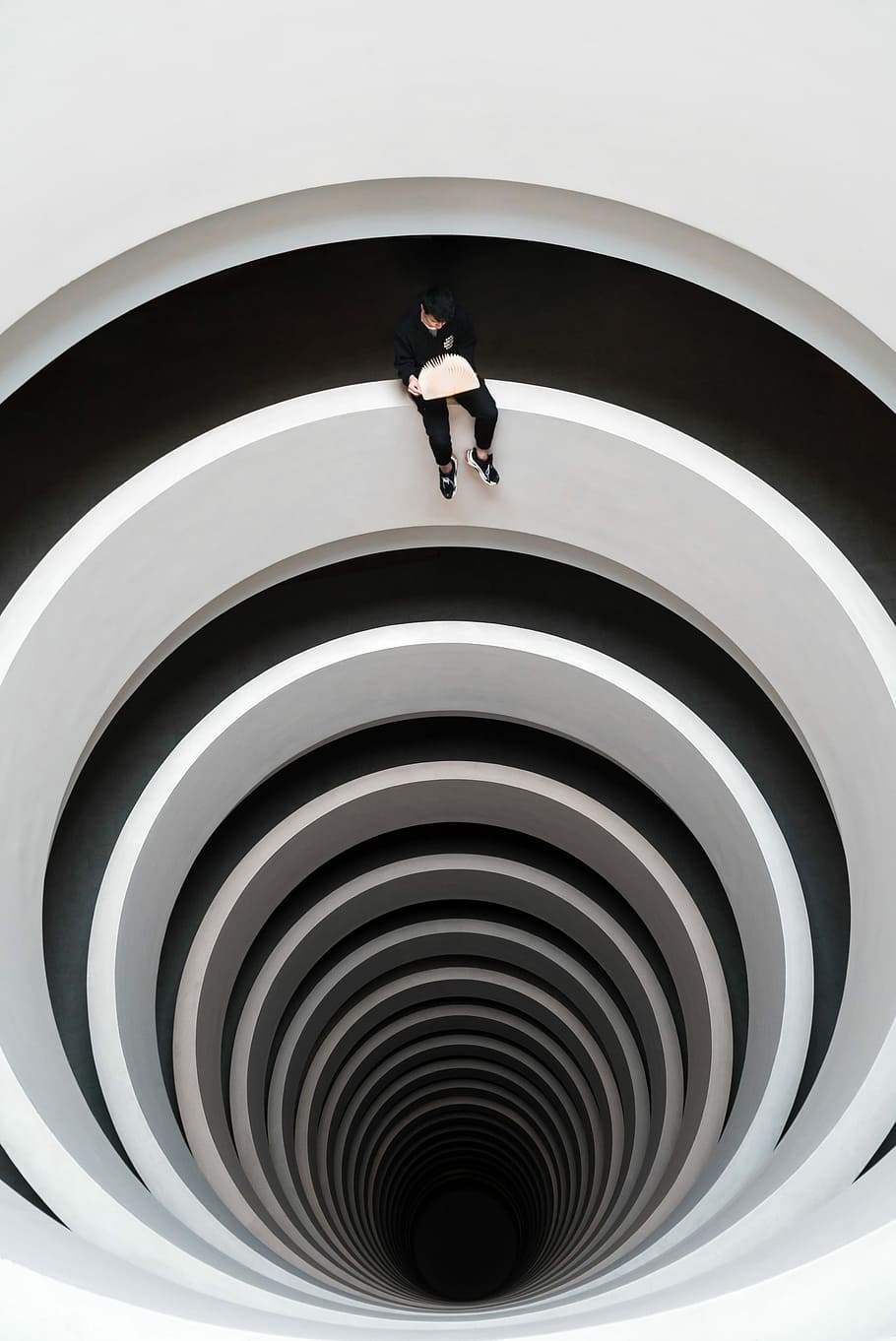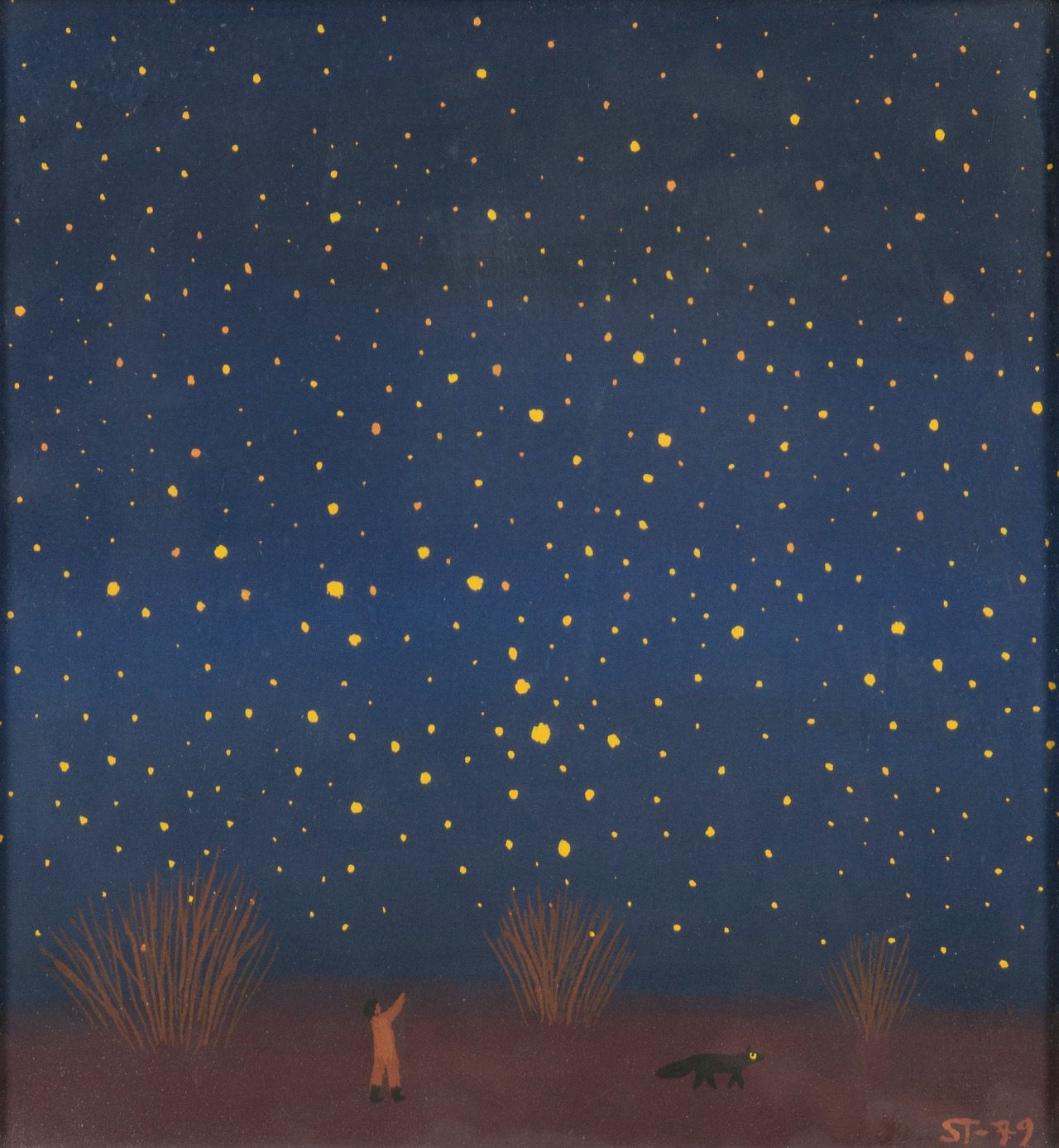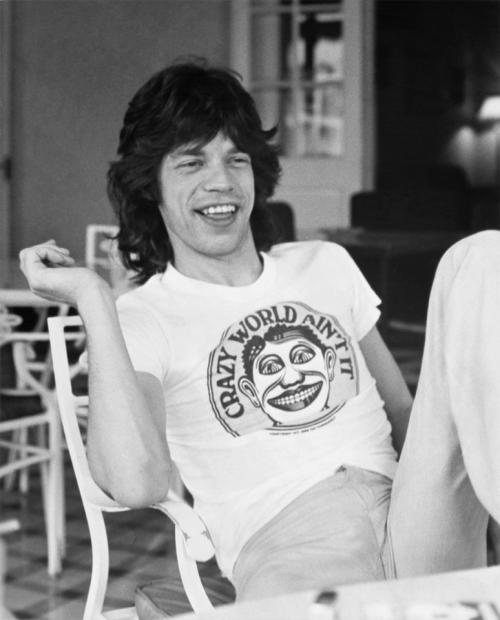30 April 2020
Security.
Peale (Rembrandt), Thomas Jefferson, 1805
When in the Course of human events, it becomes necessary for one people to dissolve the political bands which have connected them with another, and to assume among the powers of the earth, the separate and equal station to which the Laws of Nature and of Nature's God entitle them, a decent respect to the opinions of mankind requires that they should declare the causes which impel them to the separation.
We hold these truths to be self-evident, that all men are created equal, that they are endowed by their Creator with certain unalienable Rights, that among these are Life, Liberty and the pursuit of Happiness.--That to secure these rights, Governments are instituted among Men, deriving their just powers from the consent of the governed, --That whenever any Form of Government becomes destructive of these ends, it is the Right of the People to alter or to abolish it, and to institute new Government, laying its foundation on such principles and organizing its powers in such form, as to them shall seem most likely to effect their Safety and Happiness. Prudence, indeed, will dictate that Governments long established should not be changed for light and transient causes; and accordingly all experience hath shewn, that mankind are more disposed to suffer, while evils are sufferable, than to right themselves by abolishing the forms to which they are accustomed. But when a long train of abuses and usurpations, pursuing invariably the same Object evinces a design to reduce them under absolute Despotism, it is their right, it is their duty, to throw off such Government, and to provide new Guards for their future security.
Ian McCulloch, "The Fountain"
I slept by the mountain
Of rivers we crossed
I dreamt of the fountain
And the coin that we tossed
Now I'm just counting
The dreams that were lost
One coin in a fountain
Was that all it cost?
Is that all it cost?
I followed the oceans
I swallowed the seas
I buried emotions
I couldn't set free
I took every potion
From A to me
And that was devotion
Was that really me?
Is that really me?
What a way to waste your wishes
Changing something for somehow
What I'd pay to taste your kisses,
Here and now, here and now, here and now,
Do you hear me now?
Will there be thunder?
Will lightning strike?
Will I kneel in wonder
In a tunnel of light?
Will I go under?
And give up the light
When they call my number
Called in the night
Call in the night
I cried the fountain dry
I climbed the mountains high
Hallelujah, hallelujah
I got to you
Of rivers we crossed
I dreamt of the fountain
And the coin that we tossed
Now I'm just counting
The dreams that were lost
One coin in a fountain
Was that all it cost?
Is that all it cost?
I followed the oceans
I swallowed the seas
I buried emotions
I couldn't set free
I took every potion
From A to me
And that was devotion
Was that really me?
Is that really me?
What a way to waste your wishes
Changing something for somehow
What I'd pay to taste your kisses,
Here and now, here and now, here and now,
Do you hear me now?
Will there be thunder?
Will lightning strike?
Will I kneel in wonder
In a tunnel of light?
Will I go under?
And give up the light
When they call my number
Called in the night
Call in the night
I cried the fountain dry
I climbed the mountains high
Hallelujah, hallelujah
I got to you
Alive.
Mozart’s letters deliver many such jolts — reminders that, however directly we might feel that Mozart’s music speaks to us, he’s not a man of our time. But for every shock of difference, there’s a start of recognition. Composers’ letters can make frustrating reading. Beethoven’s are brusque, practical affairs; Brahms hides behind a humour as impenetrable as his beard. But with Mozart, you get the whole personality — candid, perceptive and irresistibly alive.
CONNECT
Impasse.
Every day, we hear about new discoveries that shed light on how brains work, along with the promise – or threat – of new technology that will enable us to do such far-fetched things as read minds, or detect criminals, or even be uploaded into a computer. Books are repeatedly produced that each claim to explain the brain in different ways.
And yet there is a growing conviction among some neuroscientists that our future path is not clear. It is hard to see where we should be going, apart from simply collecting more data or counting on the latest exciting experimental approach. As the German neuroscientist Olaf Sporns has put it: “Neuroscience still largely lacks organising principles or a theoretical framework for converting brain data into fundamental knowledge and understanding.” Despite the vast number of facts being accumulated, our understanding of the brain appears to be approaching an impasse.
In 2017, the French neuroscientist Yves Frégnac focused on the current fashion of collecting massive amounts of data in expensive, large-scale projects and argued that the tsunami of data they are producing is leading to major bottlenecks in progress, partly because, as he put it pithily, “big data is not knowledge”.
“Only 20 to 30 years ago, neuroanatomical and neurophysiological information was relatively scarce, while understanding mind-related processes seemed within reach,” Frégnac wrote. “Nowadays, we are drowning in a flood of information. Paradoxically, all sense of global understanding is in acute danger of getting washed away. Each overcoming of technological barriers opens a Pandora’s box by revealing hidden variables, mechanisms and nonlinearities, adding new levels of complexity.”
The neuroscientists Anne Churchland and Larry Abbott have also emphasised our difficulties in interpreting the massive amount of data that is being produced by laboratories all over the world: “Obtaining deep understanding from this onslaught will require, in addition to the skilful and creative application of experimental technologies, substantial advances in data analysis methods and intense application of theoretic concepts and models.”
There are indeed theoretical approaches to brain function, including to the most mysterious thing the human brain can do – produce consciousness. But none of these frameworks are widely accepted, for none has yet passed the decisive test of experimental investigation. It is possible that repeated calls for more theory may be a pious hope. It can be argued that there is no possible single theory of brain function, not even in a worm, because a brain is not a single thing. (Scientists even find it difficult to come up with a precise definition of what a brain is.)
CONNECT
Mozart, Horn Quintet in E-flat major, K.407/386c
Katy Woolley, horn, Bogdan Bozovic, violin, Mark Holloway and Rosalind Ventris, viola, and James Barralet, cello ...
Gordon Lightfoot, "Canadian Railroad Trilogy"
There was a time in this fair land when the railroad did not run
When the wild majestic mountains stood alone against the sun
Long before the white man and long before the wheel
When the green dark forest was too silent to be real
When the wild majestic mountains stood alone against the sun
Long before the white man and long before the wheel
When the green dark forest was too silent to be real
29 April 2020
Born.
I want to die in the saddle. An enemy of civilization,
I want to walk around in the woods, fish and drink.
I'm going to be a child about it and I can't help it, I was
born this way and it makes me very happy to fish and
drink.
I left when it was still dark and walked on the path to the
river, the Yellow Dog, where I spent the day fishing
and drinking.
After she left me and I quit my job and wept for a year and
all my poems were born dead, I decided I would only
fish and drink.
Water will never leave earth and whiskey is good for the
brain.
What else am I supposed to do in these last days but fish
and drink?
In the river was a trout and I was on the bank, my heart
in my
chest, clouds above, she was in NY forever and I, fishing
and drinking.
Jim Harrison
Weight.
David Bowie
28 April 2020
Excellent.
An excellent book ...
There are perhaps no days of our childhood we lived so fully as those we spent with a favorite book. Everything that filled them for others, so it seemed, and that we dismissed as a vulgar obstacle to a divine pleasure: the game for which a friend would come to fetch us at the most interesting passage; the troublesome bee or sun ray that forced us to lift our eyes from the page or to change position; the provisions for the afternoon snack that we had been made to take along and that we left beside us on the bench without touching, while above our head the sun was diminishing in force in the blue sky; the dinner we had to return home for, and during which we thought only of going up immediately afterward to finish the interrupted chapter, all those things with which reading should have kept us from feeling anything but annoyance, on the contrary they have engraved in us so sweet a memory (so much more precious to our present judgment than what we read then with such love), that if we still happen today to leaf through those books of another time, it is for no other reason than that they are the only calendars we have kept of days that have vanished, and we hope to see reflected on their pages the dwellings and the ponds which no longer exist.
Maryanne Wolf, from Proust and the Squid: The Story and Science of the Reading Brain
Wolf talked about her book on C-SPAN ... HERE.
There are perhaps no days of our childhood we lived so fully as those we spent with a favorite book. Everything that filled them for others, so it seemed, and that we dismissed as a vulgar obstacle to a divine pleasure: the game for which a friend would come to fetch us at the most interesting passage; the troublesome bee or sun ray that forced us to lift our eyes from the page or to change position; the provisions for the afternoon snack that we had been made to take along and that we left beside us on the bench without touching, while above our head the sun was diminishing in force in the blue sky; the dinner we had to return home for, and during which we thought only of going up immediately afterward to finish the interrupted chapter, all those things with which reading should have kept us from feeling anything but annoyance, on the contrary they have engraved in us so sweet a memory (so much more precious to our present judgment than what we read then with such love), that if we still happen today to leaf through those books of another time, it is for no other reason than that they are the only calendars we have kept of days that have vanished, and we hope to see reflected on their pages the dwellings and the ponds which no longer exist.
Maryanne Wolf, from Proust and the Squid: The Story and Science of the Reading Brain
Wolf talked about her book on C-SPAN ... HERE.
Spoke.
Sargent, Kenneth Grahame, 1922
The smell of that buttered toast simply spoke to Toad, and with no uncertain voice; talked of warm kitchens, of breakfasts on bright frosty mornings, of cosy parlour firesides on winter evenings, when one’s ramble was over and slippered feet were propped on the fender; of the purring of contented cats, and the twitter of sleepy canaries.
Kenneth Grahame, from the Wind in the Willows
The smell of that buttered toast simply spoke to Toad, and with no uncertain voice; talked of warm kitchens, of breakfasts on bright frosty mornings, of cosy parlour firesides on winter evenings, when one’s ramble was over and slippered feet were propped on the fender; of the purring of contented cats, and the twitter of sleepy canaries.
Kenneth Grahame, from the Wind in the Willows
Belief.
It is lack of confidence, more than anything else, that kills a civilisation. We can destroy ourselves by cynicism and disillusion, just as effectively as by bombs.
Sir Kenneth Clark, from Civilisation
CONNECT
Perhaps.
If a man does not keep pace with his companions, perhaps it is because he hears a different drummer. Let him step to the music which he hears, however measured or far away. It is not important that he should mature as soon as an apple tree or an oak. Shall he turn his spring into summer? If the condition of things which we were made for is not yet, what were any reality which we can substitute? We will not be shipwrecked on a vain reality. Shall we with pains erect a heaven of blue glass over ourselves, though when it is done we shall be sure to gaze still at the true ethereal heaven far above, as if the former were not?
Henry David Thoreau
First.
The complexity of our present trouble suggests as never before that we need to change our present concept of education. Education is not properly an industry, and its proper use is not to serve industries, either by job-training or by industry-subsidized research.
It's proper use is to enable citizens to live lives that are economically, politically, socially, and culturally responsible. This cannot be done by gathering or "accessing" what we now call "information" - which is to say facts without context and therefore without priority.
A proper education enables young people to put their lives in order, which means knowing what things are more important than other things; it means putting first things first.
Wendell Berry
Sibelius, Serenade In D Major Op.69
Heimo Haitto performs with the Finnish Radio Orchestra, Ulf Söderblom, conductor ...
27 April 2020
Telemann, Paris Quartet in G Major, TWV 43 G1
The Elephant House Quartet performs the Legerement ...
26 April 2020
25 April 2020
Bach, Violin Concerto No.1 in A minor, BWV 1041
Viktoria Mullova performs with the Academy of Ancient Music ...
Happy Birthday, Tchaikovsky
Pyotr Tchaikovsky was born on this date in 1840.
There is no doubt that even the greatest musical geniuses have sometimes worked without inspiration. This guest does not always respond to the first invitation. We must always work, and a self-respecting artist must not fold his hands on the pretext that he is not in the mood. If we wait for the mood, without endeavoring to meet it half-way, we easily become indolent and apathetic. We must be patient, and believe that inspiration will come to those who can master their disinclination.
Pyotr Tchaikovsky
The Moscow State Symphony Orchestra, conducted by Pavel Kogan, performs the Waltz from Eugene Onegin ...
Obsolete.
Isaac Bashevis Singer
24 April 2020
Engagement.
George Will on what we lost when we stopped reading ...
Modernity’s greatest blessing — individualism: the celebration of individual agency — depends on a sense of one’s interior, of self-consciousness. This is facilitated by deep literacy that, unlike the oral communication of premodern groups, requires solitude for the reader’s private repose. Modernity, and eventually democracy, advanced through Protestantism’s emphasis of individual engagement with writing — the Bible made accessible to personal reading in various languages.
Integral to liberal-democratic politics are, Garfinkle says, abstract ideas — “representation; the virtues of doubt, dissent, and humility; and the concept of a depersonalized constitutional order.” A society that loses the ballast of deep literacy is apt to become less thoughtful, more emotional and volatile. It will become impatient with the pace of refined, impersonal governance through institutions. It will seek “a less abstract, re-personalized form of social and political authority concentrated in a ‘great’ authoritarian leader.”
Deep literacy has always been a minority taste and attainment, but is always necessary, especially among elites, to leaven majoritarian politics. But because of today’s social media technologies, Garfinkle believes, there is increased, if superficial and emotive, participation in political discourse.
CONNECT
Revolution.
In her 2018 book, Reader, Come Home, Wolf uses cognitive neuroscience and developmental psycholinguistics to study the reading brain and literacy development, and in doing so, helps identify what is being lost. According to Wolf, we are losing what she calls "deep literacy" or "deep reading." This does not include decoding written symbols, writing one's name, or making lists. Deep literacy is what happens when a reader engages with an extended piece of writing in such a way as to anticipate an author's direction and meaning, and engages what one already knows in a dialectical process with the text. The result, with any luck, is a fusion of writer and reader, with the potential to bear original insight.
Deep literacy has wondrous effects, nurturing our capacity for abstract thought, enabling us to pose and answer difficult questions, empowering our creativity and imagination, and refining our capacity for empathy. It is also generative of successive new insight, as the brain's circuitry for reading recursively builds itself forward. It is and does all these things in part because it touches off a "revolution in the brain," meaning that it has distinctive and describable neurophysiological consequences. Understanding deep literacy as a revolution in the brain has potential payoffs for understanding aspects of history and contemporary politics alike.
Deep reading has in large part informed our development as humans, in ways both physiological and cultural. And it is what ultimately allowed Americans to become "We the People," capable of self-government. If we are losing the capacity for deep reading, we must also be prepared to lose other, perhaps even more precious parts of what deep reading has helped to build.
CONNECT
Covers.
Kossan covers the classics ...
Ramones, "Teenage Lobotomy" ...
Queen, "We Will Rock You" ...
The Crowned Heads of Anti-Music, "Yellow Submarine" ...
I love it when cover versions are better that the originals.
Thank you, Claire.
Ramones, "Teenage Lobotomy" ...
Queen, "We Will Rock You" ...
The Crowned Heads of Anti-Music, "Yellow Submarine" ...
I love it when cover versions are better that the originals.
Thank you, Claire.
Without.
Audubon, Yellow Warbler, 1829
This year we have two gorgeous
yellow warblers nesting in the honeysuckle bush.
The other day I stuck my head in the bush.
The nestlings weigh one-twentieth of an ounce,
about the size of a honeybee. We stared at
each other, startled by our existence.
In a month or so, when they reach the size
of bumblebees they’ll fly to Costa Rica without a map.
Jim Harrison
Flowering.
Opusculum paedagogum.
The pears are not viols,
Nudes or bottles.
They resemble nothing else.
They are yellow forms
Composed of curves
Bulging toward the base.
They are touched red.
They are not flat surfaces
Having curved outlines.
They are round
Tapering toward the top.
In the way they are modelled
There are bits of blue.
A hard dry leaf hangs
From the stem.
The yellow glistens.
It glistens with various yellows,
Citrons, oranges and greens
Flowering over the skin.
The shadows of the pears
Are blobs on the green cloth.
The pears are not seen
As the observer wills.
Wallace Stevens
Crouch.
If you love wealth greater than liberty, the tranquility of servitude greater than the animating contest for freedom, go home from us in peace. We seek not your counsel, nor your arms. Crouch down and lick the hand that feeds you; May your chains set lightly upon you, and may posterity forget that you were our countrymen.
Thomas Paine
Study.
building a bridge out over the sea
though the sea was too wide.
I’m proud of the bridge
hanging in the pure sea air. Machado
came for a visit and we sat on the
end of the bridge, which was his idea.
Now that I’m old the work goes slowly.
Even nearer death, I like it out here
high above the sea bundled
up for the arctic storms of late fall,
the resounding crash and moan of the sea,
the hundred-foot depth of the green troughs.
Sometimes the sea roars and howls like
the animal it is, a continent wide and alive.
What beauty in this the darkest music
over which you can hear the lightest music of human
behavior, the tender connection between men and galaxies.
So I sit on the edge, wagging my feet above
the abyss. Tonight the moon will be in my lap.
This is my job, to study the universe
from my bridge. I have the sky, the sea, the faint
green streak of Canadian forest on the far shore.
Jim Harrison
Josquin.
Marco Mencoboni directs Cantar Lontano and Capella de la Torre performing missas by Josquin and others ...
23 April 2020
Subscribe to:
Posts (Atom)
